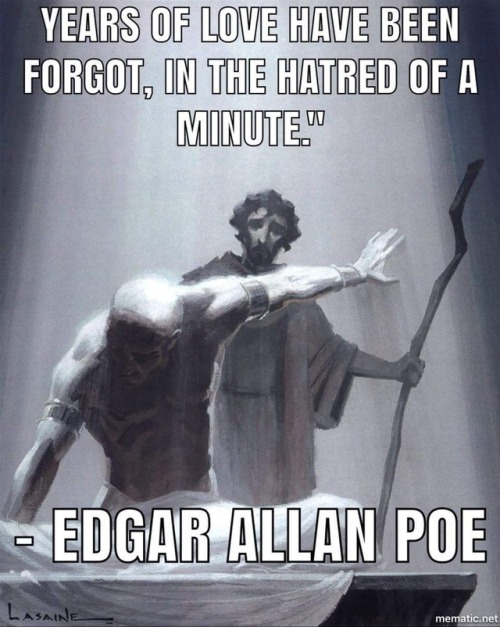Moses - Tumblr Posts

Moses (drawn from a screenshot)
Hasbro's Prince of Egypt (1998) collection dolls
Queen Tuya doll including baby Moses


Tzipphorah doll including a baby sheep


Images found in google that are supposed to be prototypes of Queen Tuya and Yocheved with baby Moses




Look at you! Pharaoh!
And look at you! What on earth are you dressed as?
The Prince of Egypt 25th Anniversary!







The Prince of Egypt was released this day 25 years ago in American cinemas nationwide. It is one of my favorite movies of all time. Nothing compares to this film. This movie is unlike any other, and there possibly is never going to be one like it. Shoutout to all the casts and crew who took part in making this masterpiece of a film possible. Thank you all for making this film a reality.
You will when you believe.
The Moses Controversy
Many scholars and some Theologians claim that Moses did not write the Torah or what we call The Books of Moses which are the first five books of the Old Testament, and they even have a PHD to prove it. Must be a Phony Historical Document! They claim there was no Hebrew script or alphabet prior to the Phoenician’s. Well, that’s just not true! And today there is evidence. The prophet Daniel did…

View On WordPress

The Evolution of a Gentile Messiah in the Bible
By Biblical Researcher Eli Kittim 🎓
——-
Jesus rejects the notion that he’s a descendant of David, and of the Jews, in Matthew 22:41-46.
——-
That’s precisely why the gospel writers are especially careful to dissociate him from the southern kingdom of Judah and from the Jews by locating his place of origin in the north, in the land of the Gentiles, a place outside of, and external to, the Jewish Kingdom. Btw, strictly speaking, the word “Jew “ means a person from the kingdom of Judah (Ιουδαίος).
——-
The Figurative Text (Excerpted from Kittim’s book, The Little Book of Revelation, Chapter 5):
In contrast to the “New Perspective on Paul,” which tries to Hebraize the Greek New Testament by giving Paul a Hebrew flavor, Paul himself is adamant that “Jewishness” in the Bible has nothing to do with race or descendancy. Paul gives us an exact definition of what it means to be a “Jew” within the NT context:
“For a person is not a Jew who is one outwardly, nor is true circumcision something external and physical. Rather, a person is a Jew who is one inwardly, and real circumcision is a matter of the heart—it is spiritual and not literal. Such a person receives praise not from others but from God” (Rom. 2.28-29).
According to Paul’s stunning definition, the biblical term “Jew” does not denote a race or an apparent physical birthright (as the “New Perspective on Paul” would have us believe), but rather an inner essence or, more precisely, an indwelling spirit pertaining to God. This descriptive terminology certainly illustrates a radical new way of approaching, reading, and interpreting the Bible. William Barclay, a world-renowned New Testament scholar, rightly emphasizes that Paul’s message must have infuriated the Jews:
“To a Jew a passage like this must have come as a shattering experience. He was certain that God regarded him with special favour, simply and solely because of his national descent from Abraham and because he bore the badge of circumcision in his flesh. But Paul introduces an idea to which he will return again and again. JEWISHNESS, he insists, IS NOT A MATTER OF RACE AT ALL; IT HAS NOTHING TO DO WITH CIRCUMCISION. It is a matter of conduct. If that is so, many a so-called Jew who is a pure descendant of Abraham and who bears the mark of circumcision in his body, is no Jew at all; and equally many a GENTILE who never heard of Abraham and who would never dream of being circumcised, IS A JEW IN THE REAL SENSE OF THE TERM. To a Jew this would sound the wildest heresy and leave him angry and aghast.”
(The Letter to the Romans. The Daily Study Bible Series. Rev. ed. [Philadelphia: Westminster, 1975], p. 47, emphasis added).
——-
It’s not at all coincidental that in the plot of the gospels Jesus becomes the figurative “son of Joseph,” who is himself reminiscent of the great hero that once lived and reigned in Egypt (the land of the Gentiles)!
——-
Another Biblical clue concerning a Gentile Messiah (besides Moses the “Egyptian”) is the unique reference to Cyrus, who is explicitly called in the Book of Isaiah God’s “anointed” (i.e. messiah; Isa. 45.1). Cyrus is not a Jew! That’s precisely why God says in Isaiah 46.11 that he will bring from a far country the Messiah who will execute his counsel (cf. Matt. 28.18; 1 Cor. 15.24-25). Not only is the Messiah not Jewish, but the elect themselves are not defined as biological Jews. As Romans 9.8 reminds us, “it is not the children by physical descent who are God’s children, but it is the children of the promise who are regarded as Abraham’s offspring.”
——-
And why do you suppose Jesus is compared “to the order of Melchizedek” (Heb. 6.20)? What’s the point of the mimesis? Precisely because Melchizedek “does not belong to their [Jewish] ancestry” (Heb. 7.6), and when compared to Jesus, it follows that Jesus himself “does not belong to their ancestry” either! What is the New Testament trying to tell us? Just like Melchizedek, Christ is not a Jew!
——-
That’s why the gospels keep telling us over and over again that the Jews expect a Jewish messiah to arrive from the line of David but are terribly disappointed in seeing a Gentile messiah appearing from Galilee. And, as a consequence, they want to kill him! And, in the end, they do!
——-
Division of People over Jesus in John's Gospel Because He Does Not Come from Bethlehem of the Jews but from Galilee of the Gentiles:
“Others were saying, “Surely the Christ is not going to come from Galilee, is He? Has not the Scripture said that the Christ comes from the descendants of David [Jews], and from Bethlehem, the village where David was?” So a division occurred in the crowd because of Him” (John 7.41-43).
——-
Jesus Christ (Gk. Ἰησοῦς Χριστός; 1 Cor. 3.11) Defies Jewish Messianic Expectations
John 7.52:
“Search, and see that no prophet arises out of Galilee” (cf. Mt. 4.15-16).
——-
Furthermore, it’s the Greek New Testament that introduces Jesus the Messiah, NOT the Hebrew Bible!
——-
And the Greek-New-Testament was not written by Jews but by Greeks! The New Testament was typically written in articulate, refined Greek, not in Hebrew! And it seems that they weren’t fluent In Hebrew because when these NT authors quote from the OT, they predominantly quote from the Septuagint, an early Greek translation of the Hebrew Bible, and not from the original Hebrew scriptures per se. This indicates that the NT authors were not familiar with the Hebrew language. In other words, they were NOT Jews. And most of the NT letters are addressed to Greek communities rather than Jewish ones. This Greek-element——running not only through the “thematic structure” but also via the writing, composition, production, place-of-authorship (which is said to be outside of Palestine), distribution, and dissemination of the text (largely to Gentile communities)——speaks volumes about the NT’s theological purpose, authorial intention, and cultural milieu!
——-
Conclusion
Unfortunately, we have failed to notice that the narrative of a •Gentile-messiah• is a major theme that runs across the entire Bible! And, in my opinion, the gospels certainly take advantage of this literary motif by showing through various rhetorical devices that Christ is not a Jew!
——-

Israelology Versus Replacement Theology: Is the Bible about Israel or Jesus?
Eli Kittim
If Jesus is the Messianic fulfillment of the Hebrew Bible, then the Old Testament is essentially Christocentric (not Jewishcentric) and the New Testament is not talking about two peoples (the Jews & the church) but rather one: the elect (cf. Eph. 2:19-20), which is to say that the overarching theme of the Old Testament is not about a race but about a person: the Messiah!
If in fact there are 2 peoples with 2 different sets of standards (law & grace) by which they’re saved, then that would invalidate Christ’s atonement, as would the rebuilding of the third Jewish temple, which would necessitate the reinstituting of animal sacrifices. However, the Bible is not about ethnicity, racism, or nationalism. In Romans 2:28-29 (NASB), Paul redefines what the term Jew means in scripture:
For he is not a Jew who is one outwardly,
nor is circumcision that which is outward in
the flesh. But he is a Jew who is one
inwardly; and circumcision is of the heart.
In the Bible, there are not two people of God, but only one: those who are in Christ. At the end of the age, Christ will separate “the sheep from the goats” (Mt. 25.32). In other words, there are only two categories: you are either in Christ or out of Christ! The Bible is Christocentric. It is not ethnocentric. It’s not about a race.
Instead of admitting that they view the Bible as being about their race and not about Christ, the Hebrew Roots Movement dresses it up euphemistically as though the controversy was about the Jews versus the church. But that’s a misnomer. The real controversy is this: they don’t believe that the Bible is about Christ. But they hide that from you! Messianic Jews are often far more Judaic than they let on.
Read the letter to the Hebrews, chapter 9. It’s all about how Christ is greater than the temple sacrifices or the Law of Moses. This is a New Covenant. So why are the Jews holding on to the old one? Hebrews 8:13 declares:
When He [God] said, ‘A new covenant,’ He
has made the first obsolete.
Both Galatians and Romans are authentic Pauline letters. In those letters, Paul says categorically & unequivocally that we are saved by Grace, not by the Law. Paul says in Galatians 2:16:
a person is not justified by works
of the Law but through faith in Christ.
In Galatians 2:21, Paul says:
if righteousness comes through the Law, then
Christ died needlessly.
In Galatians 3:11, Paul repeats the justification of faith teaching:
that no one is justified by the Law before
God is evident; for, ‘the righteous one will
live by faith.’
It’s also found in many other places, including Romans 3:20:
by the works of the Law none of mankind
will be justified in His sight.
It doesn’t get any clearer than that. We are not to observe the law. We are saved by faith in Jesus Christ. According to Acts 4:12:
there is salvation in no one else [except
Jesus Christ]; for there is no other name
under heaven that has been given among
mankind by which we must be saved.
Yahweh is never once mentioned in the New Testament. Moreover, Galatians 3:7 says that we are the sons of Abraham by faith (not by race):
recognize that it is those who are of faith
who are sons of Abraham.
Ephesians 2:12-13 says that through “the blood of Christ” the elect are now part of God’s family. There’s only one plan, one family, one salvation, and one Lord, not 2 different salvation plans, or 2 peoples. It’s not that we have replaced Israel but that we have been brought into one family through Jesus’ atonement (the new covenant) which was prophesied in Jeremiah 31.31.
Incidentally, the history of replacement theology doesn’t go back to the dispensationalism of the 1800s, but rather to the early church. In Jer. 3:8, God gave Israel an official certificate of divorce. In Mt. 21:43, Jesus promised that the kingdom of God will be taken away from the Jews and given to another nation. Justin Martyr (100-165 AD) concurred that God’s covenant with Israel was annulled and that the Jews had been replaced by the Gentiles. Origen’s (185-253 AD) view was along the same lines. Irenaeus (ca. 130-202 AD) also proclaimed that God disinherited the Jews from his grace. Tertullian (ca. 155-220 AD) also held that the Jews had been rejected by God. Similarly, Eusebius (ca. 265-339 AD) held that the promises of Scripture were given to the Gentiles because only the Church was the “true Israel.” This was also the view of St. Augustine (354-430 AD). So, this view didn’t start in the 19th century. It was there from the beginning.
The covenant of the seed (in Genesis 12) is a reference to Christ (see Gal. 3:16). Notice that Abraham is the “father of many nations” (Gen. 17:5), not just one. So the covenant with Abraham and his descendants (Gen. 17:8) is with multiple nations, not just one! And all these are part of the covenant through Abraham’s seed, who is Christ! That’s why Isaiah 61:9 explicitly refers to God’s posterity as the people of the Gentiles:
their offspring will be known among the
nations [Gentiles], And their descendants in
the midst of the peoples. All who see them
will recognize them because they are the
offspring whom the Lord has blessed.
“It is not the children of the flesh … but the children of the promise [who] are regarded as descendants [of Israel]” (Rom 9:6-8). Here’s further proof that the language which was once used for Israel is now used to address the church (cf. Gal. 6:16). In contradistinction to those who don’t believe in Christ, 1 Peter 2:9 is addressing the church who does believe in Christ, saying:
But you are a chosen people, a royal
priesthood, a holy nation, a people for
God’s own possession.
In Colossians 1:26, “the mystery which had been hidden from the past ages and generations, but now has been revealed to His saints” is that the Gentiles are co-inheritors with Israel (cf. Gal 3:28). Ephesians 3:6 says:
This mystery is that through the gospel the
Gentiles are heirs together with Israel,
members together of one body, and sharers
together in the promise in Christ Jesus.
The real controversy about replacement theology is this: is the Bible about Judaism or Jesus? Jews argue that the Bible is not about Christ. Their Dual-covenant theology holds that the Old Covenant remains valid for Jews whereas the New Covenant is only applicable to gentiles.
Bottom line, the Bible is not about a nation or a race. It’s about a person: the God-incarnate Messiah. Those who believe in Christ think that the Bible is about Christ. Those who don’t really believe in Christ think that the Bible is about the nation of Israel. It’s that simple.
What is the argument about? It’s really about whether we pledge allegiance to Moses or to Jesus.
Has Christ been divided?
(1 Corinthians 1:13).
Who knew Passover would get me back to writing limericks?
A Hebrew from Egypt named "Mo" -
While he and his wife had a go
She'd not let him finish.
When his strength diminished
Begged "Tzippy, let my people go!"
Who led the Jews through a semi-permeable membrane? Osmoses ...
how does moses make his own beer?
Halo of Moses (Mojžíšova svätožiara)









“You were always getting me into trouble. But then, you were always there to get me out of trouble again.”
If anyone remembers the movie Dinosaur, you'll know how great of a movie it is (if you like dinosaurs especially). I was watching the movie recently and I realized something. Some of the story elements seem familiar. Aladar almost dying multiple times while he was an egg after he got stolen by the egg-eaters, him being raised by a (or the) lead female of the lemurs, Crone being a slave-driver, Aladar leading the dinosaurs to their Promised Land-the nesting grounds.
It made be think, "Could Aladar be a dinosaur Moses?" A lot is different in the story and in the people... dinosaurs... characters. But a lot is similar as well. The river and all of the times Aladar's egg almost broke compared to Moses's trip through the Nile. If y'all have seen The Prince of Egypt you'll know what I'm talking about. Moses was raised by the Pharaoh and the queen. Aladar was raised by Pleo. Pleo is never expressly stated as being the leader of the lemurs, but she is the one who advices the young females before the courtship thing. That doesn't make her a leader, but it does mean that she has some pull in the lemur society. Crone is a bit of a slave-driver and Aladar has to save the herd from him. Moses has to save the slaves from the Pharaoh. And at the end of the story both lead their charges to their own Promised Lands.
I don't know if that is what Disney intended. I may have just made something out of nothing but I just thought the similarities were interesting.
